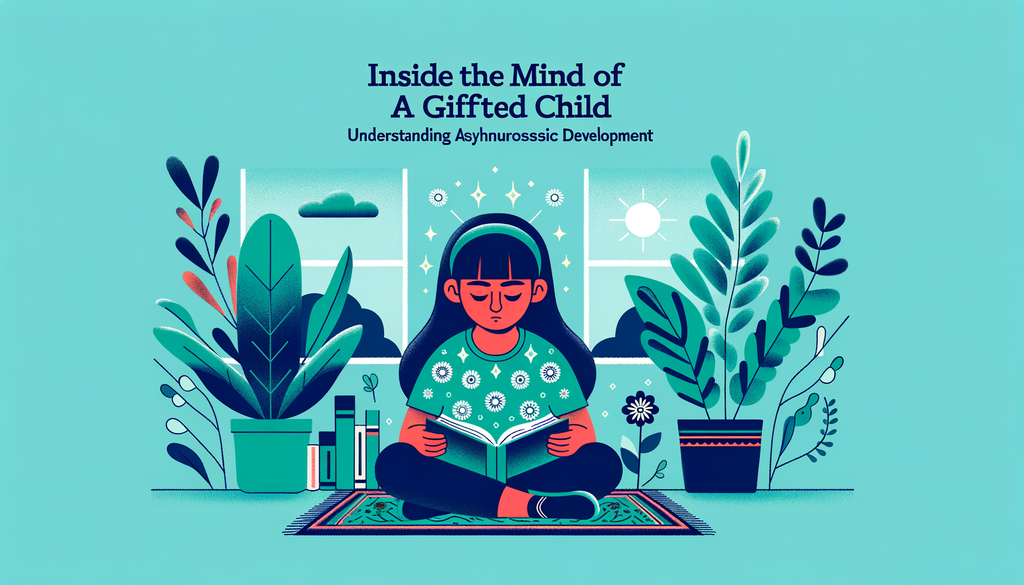Inside the Mind of a Gifted Child: Understanding Asynchronous Development

Understanding the mind of a gifted child often involves delving into the realm of asynchronous development, a phenomenon frequently associated with giftedness. In its essence, asynchronous development refers to the uneven intellectual, emotional, and physical growth observed in many gifted children.
What is Asynchronous Development?
Children generally develop along a predictable timeline, with most achieving similar cognitive, physical, and emotional milestones during the same periods of their lives. However, in gifted children, this development may not always be in sync. They may achieve cognitive milestones much earlier than their peers due to their accelerated intellectual capacities but may lag in emotional or social growth.
Impact on Schooling
Asynchronous development has a significant impact on a gifted child’s experience of school and education. Academically, these children often excel, necessitating more challenging material to stimulate their intellect, a topic we explored in a previous post The First Signs: Recognizing Giftedness in Young Children. However, their relative immaturity in emotional or social aspects can make the school environment overwhelming and contribute to social awkwardness or isolation.
Impact on Social Interactions
Interacting with age peers can be challenging for asynchronously developing children. They may find more in common with older children or even adults, much to their peers’ bemusement. This social dissonance can lead to feelings of isolation, loneliness, and lack of belonging. Active involvement and empathy from adults, including parents and teachers, can help these children forge stronger social connections, a topic we addressed previously in Peer Connections: Helping Your Child Build Friendships.
Parenting Strategies
As the parent of a gifted child showing signs of asynchronous development, your role involves providing consistent emotional support, advocating for appropriate educational accommodations, and fostering social skills. Our previous post From Playgrounds to Politics: Advocating for Your Gifted Child offers practical tips to advocate effectively for your child’s unique needs.
Parents can also facilitate social interactions by nurturing their child’s interests and providing opportunities for social engagement in these areas. This is similar to strategies we’ve discussed in our post titled Fostering Creativity: Enrichment Programs for the Gifted Learner where enrichment programs can serve as a platform for socialization while stimulating the gifted child’s intellect.
Seeking Professional Guidance
Understanding and supporting asynchronous development in gifted children can feel daunting for parents. It can be helpful to seek guidance from educators experienced with gifted children, child psychologists, and other professionals. They can provide valuable insights into your child’s development and suggest effective strategies tailored to your child’s unique needs.
Additional reading on this topic and more is available in our post Empowerment through Knowledge: Educating Yourself as a Parent, which highlights the importance of parental education in navigating the world of giftedness.
Remember, each gifted child is unique, and asynchronous development is not a hindrance but a unique characteristic of their giftedness. By gaining awareness and understanding of asynchronous development, you can support your gifted child better in achieving their full potential.